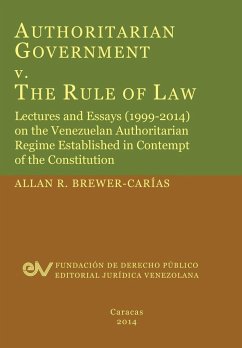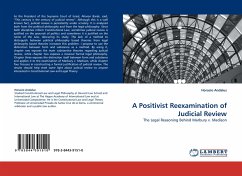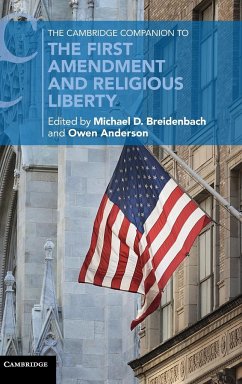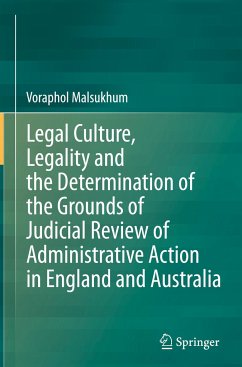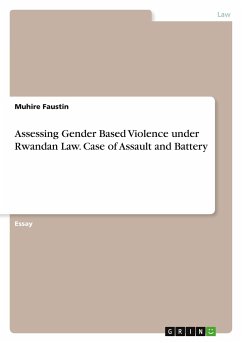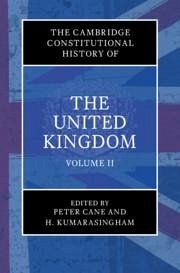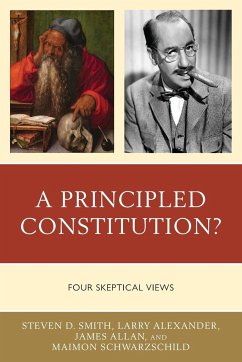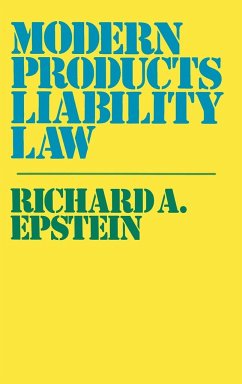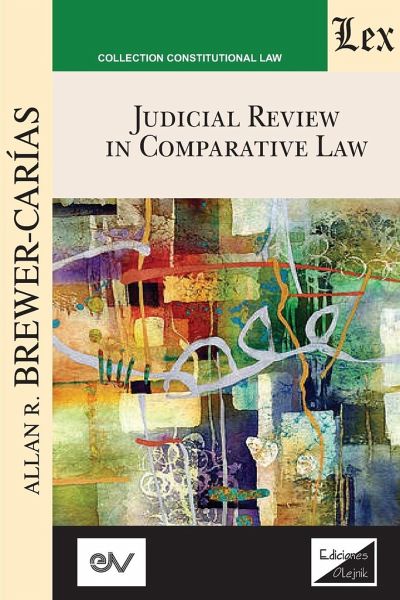
JUDICIAL REVIEW IN COMPARATIVE LAW. Course of Lectures. Cambridge 1985-1986
Versandkostenfrei!
Versandfertig in 1-2 Wochen
62,99 €
inkl. MwSt.

PAYBACK Punkte
31 °P sammeln!
This book of Professor Allan R. Brewer-Carías, on Judicial Review in Comparative Law, is the original version of the text he wrote for the Course of Lectures he gave as Simon Bolivar Professor of the University of Cambridge in 1985-1986, in the LL.M. Course at the Faculty of Law, University of Cambridge, UK. He studied in such Course the power of judges to control the constitutionality of State acts, particularly of Legislation; a subject that not only was very important at the time but continue to be one of the most important subjects of contemporary constitutional law, as well as the most d...
This book of Professor Allan R. Brewer-Carías, on Judicial Review in Comparative Law, is the original version of the text he wrote for the Course of Lectures he gave as Simon Bolivar Professor of the University of Cambridge in 1985-1986, in the LL.M. Course at the Faculty of Law, University of Cambridge, UK. He studied in such Course the power of judges to control the constitutionality of State acts, particularly of Legislation; a subject that not only was very important at the time but continue to be one of the most important subjects of contemporary constitutional law, as well as the most distinctive feature of all democratic constitutional systems, being very suitable to be analyzed in comparative law. All over the world, in all democratic States, independently of having a legal system based on the common law or on the civil law principles, the courts - special constitutional courts, supreme courts or ordinary courts - have the power to decide and declare the unconstitutionality of legislation or of other State acts when a particular statute violates the text of the Constitution or of its constitutional principles. This power can be assigned to the courts in two basic ways: to all courts having the power when deciding cases or controversies, to refuse to enforce a statute when they deemed it to be contrary to the Constitution, considering it null or void, through what is known as the diffuse system of judicial review; or can to be assigned to a single court with the power to annul the said unconstitutional law, through what is known as the concentrated system of judicial review. The former, is the system created more than two hundred years ago by the Supreme Court of the United States, and that so deeply characterizes the North American Constitutional system. The latter system, has been adopted in constitutional systems in which the judicial power of judicial review has been generally assigned to the Supreme Court or to one special Constitutional Court, as is the case, for example, of many countries in Europe and in Latin America. Both systems are analyzed in the book, with a comparative law approach. For this book, the author has included as a sort of Preface, some comments on the 2016-2017 Judicial Review Brexit case, before the constitutional judges of the United Kingdom.



